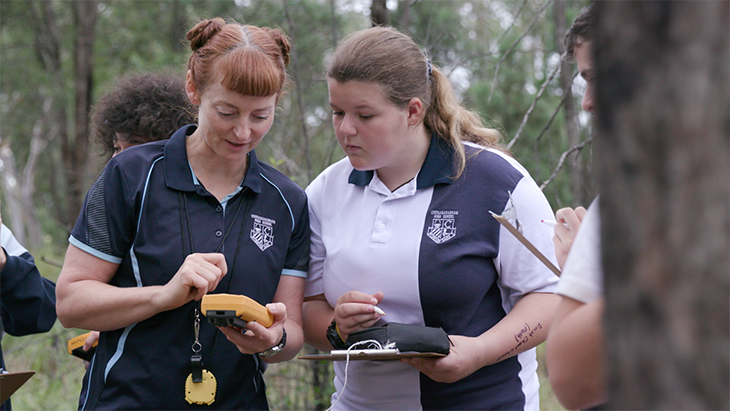Other considerations
First aid
Talk to the student’s parents or carers about ways to manage injury, illness, pain and fatigue early on.
Build a relationship with other professionals who look after the student (for example, occupational therapist). That way you will be informed on signs to look for, adjustments that can be made to relieve discomfort, and the best ways to manage injury, illness, pain and fatigue. Frequent check-ins may be needed with some students.
Behaviour
Students can monitor their performance if they have a clear understanding of what is expected. Consider talking with students to check their understanding of expectations.
Refer to the behaviour page for more information on how to reduce behaviours of concern by supporting the student and promoting more helpful behaviour. Access our emotions page for more information about supporting a student with managing their emotions.
Excursions or assisted school travel
Consider the destination and whether it is accessible and safe for the student and what access adjustments might be needed.
Consider the transportation needs of the student. For example, if using a bus, check that it has appropriate access for example, ramps or lift access for wheelchairs and that wheelchairs or aids can be either stored or secured for safe travel including any other mobility aids or equipment.
The safest way for all students to travel is in a vehicle seat wearing a seatbelt as required by law.
Some students may need to take frequent breaks during the excursion.
Refer to the Assisted School Travel Program for information on the safest way for students to travel in a vehicle, including car seats, boosters or wheelchairs.
Students who need to travel in a wheelchair in vehicles require wheelchairs that have transport lugs, have a headrest and an appropriate backrest. Schools may need to consult with a student’s therapist on the equipment and the safest way for a student to travel.
Some students may need assistance in transferring in and out of vehicles from wheelchairs to car seats or assistance with negotiating steps and entry or exit points for cars, buses, trains, light rail or ferries. Refer to the Health and Safety Resources – STRETCH Manual Handling Program for guidance on moving students on and off transport.
Other co-occuring conditions
Physical disability can often co-occur with other developmental delays such as intellectual disability or specific learning disability. They can also co-occur in students who experience deaf and hard of hearing, blind or low vision, and challenges with attention and communication.
Refer to understanding disability page or common needs page to help support the student.
Sport
The School Sport Unit provides inclusive sport and physical activity opportunities and pathways for students with disability across NSW. These focus on ability, participation, enjoyment and skill development. Opportunities include gala days, Multi-Sport days, knockouts and Come-and-Try Athletics days, and are available for students with disability who learn in mainstream classrooms, support classes in mainstream schools and Schools for Specific Purposes.
Inclusive school sport programs have the potential to support a student with disability’s social, emotional, mental and physical health. Watch Lexie and Anna’s stories of what sport and physical activity, both at school and in their journey through the representative school sport pathway, has meant to them.
Safety drills
Some students with physical disability may not know how to tell an adult if there is an emergency, or what to do in an emergency or emergency drill. Consider making time to demonstrate and practise.
Ensure all safety drills and procedures are accessible for all students. For example, paths to emergency meeting points are wide enough and unimpeded for wheelchair use.
Homework or assessments
Some students with physical disability may find completing some homework tasks challenging. Consider the students’ use of technology or assistive devices.
For example, some students might have trouble with writing and may benefit from homework that they can complete using their assistive computers or keyboards.
Work with the students’ parents or carers to develop an effective and consistent homework routine at home.
Consider discussing and demonstrating some teaching strategies and rewarding learning or wellbeing activities used in the classroom.
Self-management
Discuss with a student’s family or other professionals any additional strategies or equipment (for example, adapted toilet seat, step ladder, railings) that can be used at school to support the student.
Students with physical disability may benefit from being able to choose when and how they might need extra help.
Talk to the student to determine the best approach to help seeking, as 'too much' help may decrease self-esteem and limit the student’s sense of belonging.
Transitions
For more information about supporting students with disability with transitions, access our transition page.
Post-school transition to adult life should begin as early as possible in school.
Aim to increase independence by working on organisational, social and problem-solving skills, and time- and self- management skills. Provide plenty of opportunities to practise them across a range of contexts.
It may be helpful to identify skill gaps and develop a support plan to help them be successful (for example, social skills, academic and/or employment skills).
